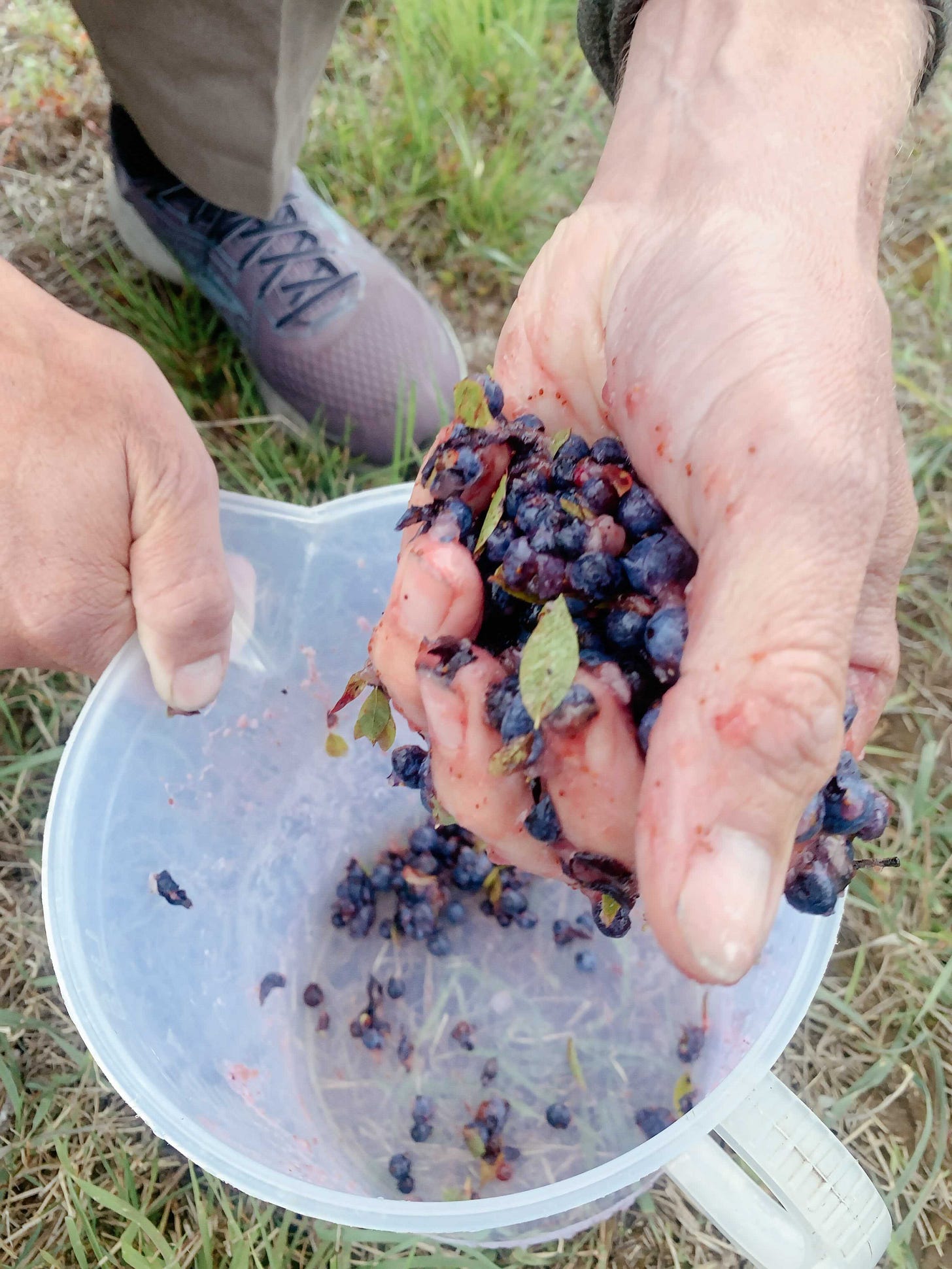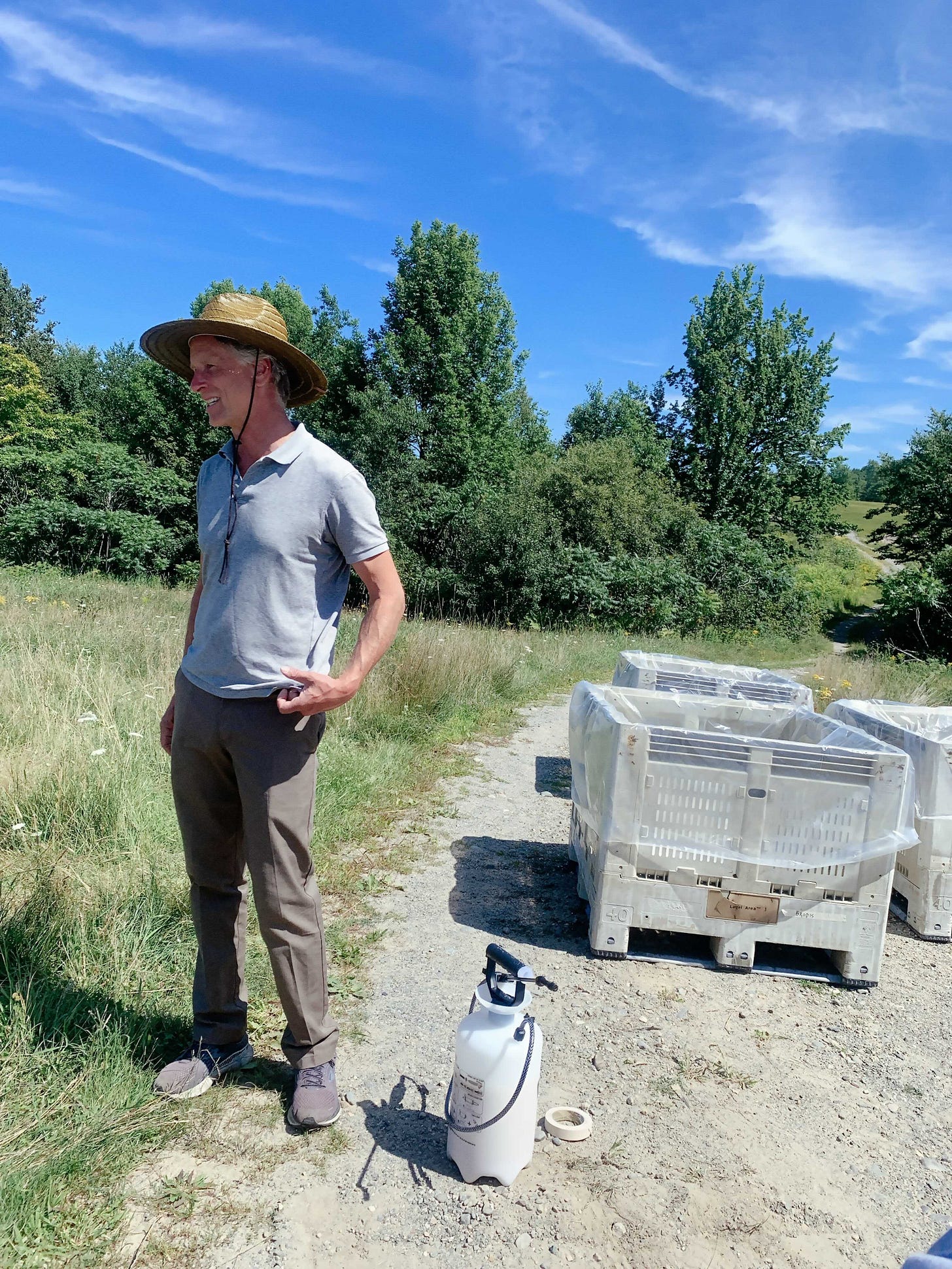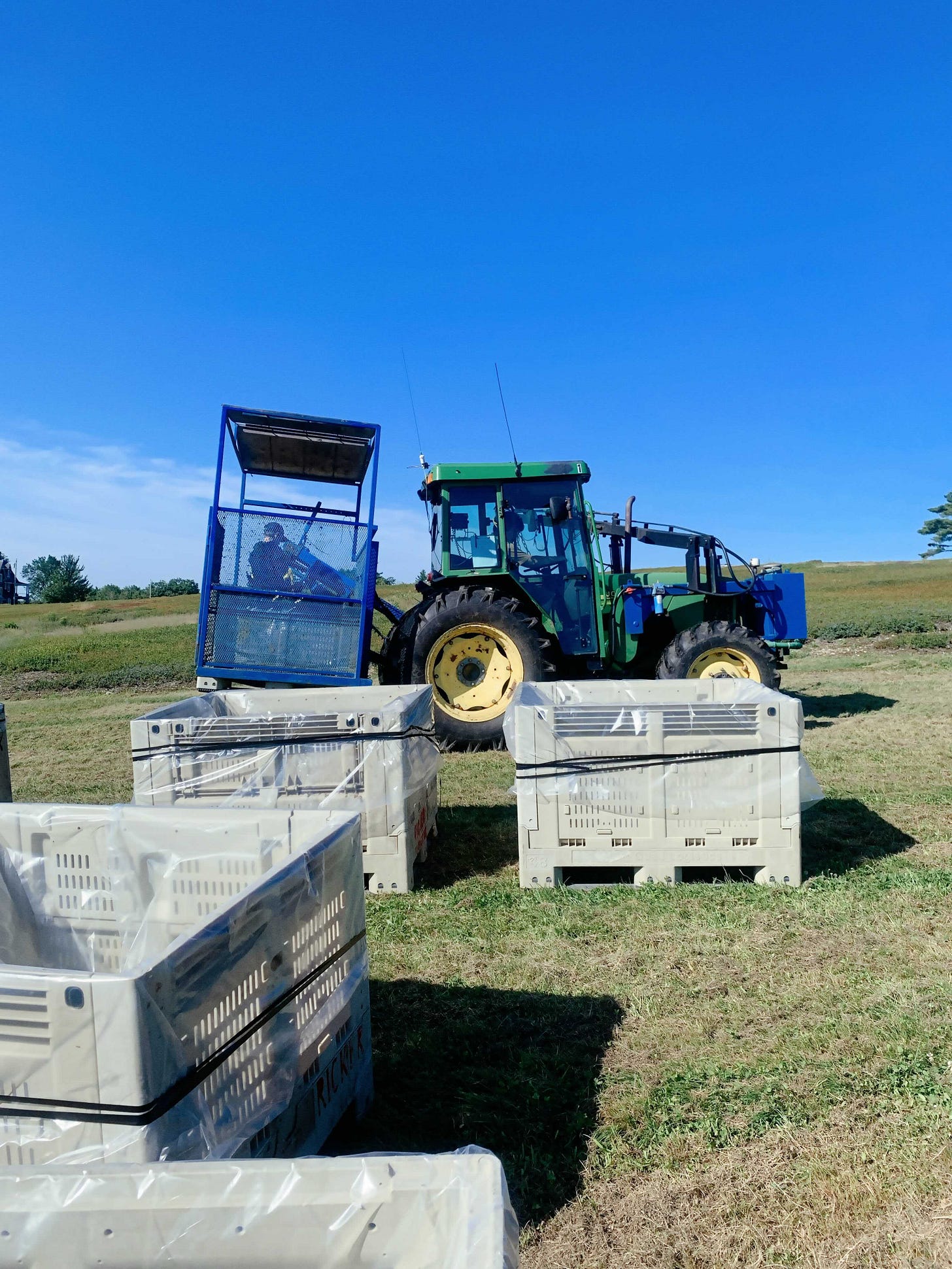The Fizz #30: Harvesting wild Maine blueberries with winemaker Michael Terrien
These last few days, I was out with the Bluet team checking out the harvest for the next vintage of Bluet, made from Maine's wild blueberries.
This issue of The Fizz is a little different. These last few days, I tagged along with Michael Terrien, winemaker at Bluet and at Napa Valley’s Obsidian Wine Co, as he came back home to Maine for the wild blueberry harvest, ready to get in the crop that will make the next vintage of wild blueberry wine. In this issue, I’ll share some of what I learned, and take you with me through the harvest.
Wild blueberries are one of the crops that Maine is known for, yet growers, and the fruit itself, are not appreciated as much as they should be. Michael and the Bluet team, along with another up-and-coming Maine winery, R.A.S., want to change that by creating a wine industry that props up this wild blueberry community. 90% of Maine’s harvest gets sold to the international market as frozen fruit. It ends up in the freezer section blended in with all the other blueberries in the world and it loses its distinction. This fruit is bought by big companies like Wyman’s, who then tell the growers how much they’ll pay for it—that means growers can’t set their own prices.
Emily from R.A.S: The payment structure for wild blueberry farmers is rigged against them. The processors are the buyers, and they set the price for blueberries after they’ve been harvested and delivered. They get back to them in December with the price—it gets adjusted to make sure that the processor makes a profit, and that gets passed down to the grower. The processor tells the grower how much they’ll pay for the fruit. You can imagine being a kid of a blueberry grower—that doesn’t seem like a great career path. It’s financially hard, there’s no guarantees, and you’re dealing with the weather difficulties.
For harvest, the Bluet team works with the individual growers to harvest as many tons of wild blueberries as they can get from each grower. Each grower uses their own harvest team—the folks who I saw out in the fields were mostly their friends and family, pitching in to either tractor rake or use mechanical walking harvesters to get the blueberries into containers, which would then get sent out to the press in Turner, Maine. In past years, farmers would hire migrant farmworkers to help them with this work. COVID and Trump-era policies mean that labor is scarce, and farmers rely on their communities to help during the busy days of harvest time.
As they’re raked, these blueberries would get lightly winnowed, or growers would use blowers to remove some of the soil and leaves on the berries before they head over to the press.

As Bluet grows, their mission focuses on being able to reach more and more wild blueberry growers, creating an industry that allows growers to be paid more than they would by selling fruit to companies like Wyman’s. As prices fluctuate, big companies can choose to pay these growers anywhere from $0.20 to $1 per pound. Bluet and R.A.S. are committing to paying these growers more for their fruit, and creating stronger and more meaningful relationships with growers throughout the state. The more they can pay growers, the more growers work with them, the more successful and sustainable the wild blueberry industry is as a whole.
Right now, Bluet uses a yeast that they spray on the lining of the baskets holding the blueberries. This yeast outcompetes the wild yeast on the fruit (and inevitably, the harvesting machinery), which allows Bluet to manage the fermentation a little better. Since blueberries, unlike grapes, grow close to the ground, they often have a higher load of yeast and bacteria, making it difficult to control the amount of acetic acid in the fermentation.
Both Bluet and R.A.S. have experimented with wild yeast fermentation, and R.A.S. Arkadia is a wild ferment. Bluet plans to continue experimenting with wild yeast down the line—learn more about their thoughts on yeast here.

Many of the growers that Bluet and R.A.S. work with have had their blueberry fields for hundreds of years—the Brodis family in Hope, Maine, has been there since 1799. The history of Maine wild blueberries goes much further—Native American Tribes, such as the Passamaquoddy, Penobscot, Abenaki, Micmac, Maliseet, and Wabanaki, used wild blueberries for food, preservation, teas, seasonings, curing meat, and so much more. The Passamaquoddy Tribe continues to grow wild blueberries in Down East.
Bluet works with the Andy Ricker of Ricker Hill Orchards in Turner, Maine to press the blueberries into juice. Andy is the eighth generation apple grower, and helps Bluet press their fruit as they increase their tonnage every year. Once the fruit is brought into the Ricker Hill Orchards facility, it gets pushed into the massive press, and pressed into juice. That juice then gets moved to the Bluet facility in Scarborough, Maine, where it ferments into wine.
This Monday, I’ll head over to the Bluet winery to watch the fermentation process. I can’t wait to see how this beautiful fruit turns into wild blueberry wine. In the meantime, you can seek out the Bluet and R.A.S. wines at your local wine shop. Asking for these wines in store is an important way to get them stocked in your region. Thanks for joining me on this journey!







